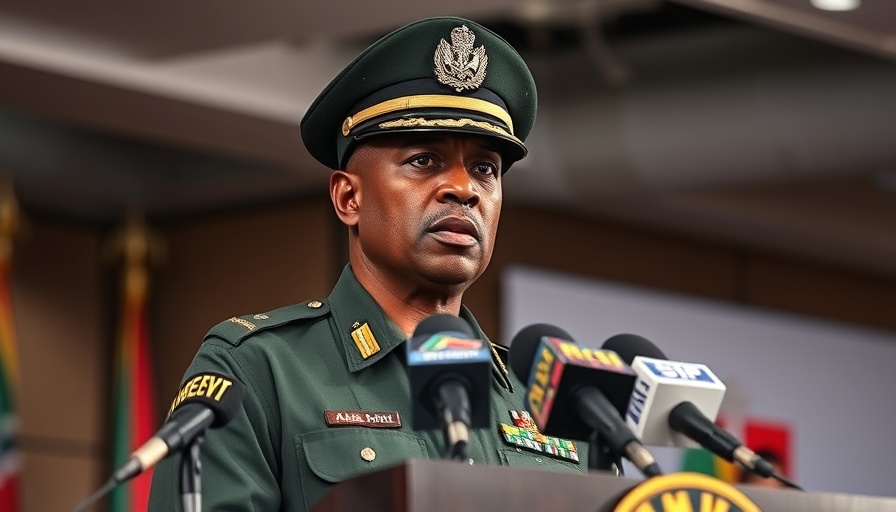
A Tale of Accountability: MK Party Supports Mkhwanazi Amidst Controversy
In a notable move, the uMkhonto weSizwe (MK) party in Gauteng has aligned itself with beleaguered KwaZulu-Natal Police Commissioner, Lieutenant General Nhlanhla Mkhwanazi, by handing over a memorandum to the provincial police leadership. This action comes amidst a backdrop of serious accusations targeting high-ranking officials within the South African Police Service (SAPS), including police minister Senzo Mchunu, who has recently been placed on special leave by President Cyril Ramaphosa.
Understanding the Context: Crime and Corruption in South Africa
The MK party’s involvement highlights the pressing issues of crime and corruption that plague South Africa’s law enforcement agencies. Mkhwanazi’s allegations against several high-profile figures raise significant questions about accountability within the police force. With public sentiment shifting towards a demand for transparent investigations rather than prolonged commissions, the call for decisive action has never been more relevant.
Exploring Allegations: A Call for Criminal Investigations
According to MKP Provincial Commander, Japhta Kgole, three individuals have been implicated in undermining justice: a civilian, Brian Mokgotsi, in possession of sensitive intelligence, Lieutenant Sibiya for defeating justice processes, and Minister Mchunu for alleged procedural infractions and misleading Parliament. These charges underscore a broader crisis in public trust towards the government and law enforcement agencies, emphasizing the necessity for immediate and effective investigations.
The Political Implications: A Flashpoint for the Upcoming National Elections
Mkhwanazi's situation is particularly significant against the backdrop of South African politics, where the stakes are high as national elections loom. The public's response to how these matters are handled could profoundly influence voter sentiment. As political parties and coalitions vie for power, issues surrounding accountability and governance will be pivotal in shaping the electoral landscape, as reflected in sentiments surrounding the ANC, Democratic Alliance, and EFF.
Response of the Authorities: Police Action and Public Sentiment
SAPS Brigadier Simon Hlungwani accepted the memorandum, promising it would reach the provincial commissioner. However, the party has demanded a response within seven days, indicating the urgency of the matter. This is a crucial moment for law enforcement; their actions—or inactions—could dictate public perception and fuel ongoing debates about crime prevention strategies and police reform.
Public Response and Expectations: Trust in Law Enforcement
The South African populace has grown weary of commissions that yield little results. As Kgole states, “Let them allow Mkhwanazi and law enforcement to continue with the investigation.” The demand for a thorough and expedient investigation resonates with citizens eager to see justice served and corruption curtailed. As community advocates engage in discussions about crime rates, police accountability, and the effectiveness of public sector services, the implications of this case ripple throughout society.
A Future Beyond Commissions: The Path to Rebuilding Trust
The way forward for the MK Party, the police, and the government hinges on their collective commitment to transparency and accountability. If Mkhwanazi’s case demonstrates the political will to tackle corruption, it could serve as a turning point for South Africa. A transparent investigation could not only serve justice but might also restore public trust in governmental institutions undermined by past scandals and governance failures.
Conclusion: The Appeal for Action
As South Africa grapples with issues from economic recovery to service delivery protests, the handling of cases like Mkhwanazi's will be paramount. The very essence of democracy is on the line, and citizens must remain vigilant, demanding accountability from their leaders and law enforcement. It’s time for a united front to combat systemic issues affecting everyday lives. South Africa's path to a brighter future depends on the steps taken today to safeguard justice and foster a culture of integrity and responsibility.
 Add Row
Add Row  Add
Add 




Write A Comment